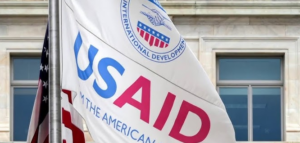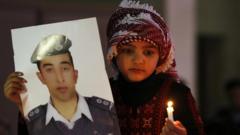Newly uncovered records show that the U.S. Agency for International Development funded the college education of Anwar al-Awlaki, raising serious questions about oversight and accountability in federal spending on foreign aid.
Al Qaeda Ties Resurface as USAID Funding for Terrorist's Education Revealed

Al Qaeda Ties Resurface as USAID Funding for Terrorist's Education Revealed
Recent documents reveal that USAID fully funded the college education of Anwar al-Awlaki, sparking concerns about government oversight in foreign aid.
New documents have surfaced indicating that the U.S. Agency for International Development (USAID) fully financed the college education of notorious al Qaeda figure Anwar al-Awlaki. This startling revelation has led to renewed scrutiny over USAID's financial practices and raised significant concerns regarding government oversight in the distribution of foreign aid.
Anwar al-Awlaki, an American-born extremist, became a prominent member of al Qaeda before being killed by a U.S. drone strike in Yemen in 2011. He was linked to several notorious terrorist activities, including his communications with Nidal Hasan, the Army psychiatrist behind the 2009 Fort Hood shooting that resulted in 13 fatalities. Despite his later notoriety, evidence now suggests that USAID provided "full funding" for al-Awlaki’s college education in Colorado.
This finding surfaces amidst ongoing investigations led by the Department of Government Efficiency (DOGE), which are probing allegations of waste, fraud, and mismanagement within federal agencies. USAID, functioning as an independent agency that manages foreign aid programs, has faced longstanding criticism from Republican legislators and watchdog organizations concerning its spending practices.
Over the years, USAID has been scrutinized for financing contentious initiatives, such as producing an Iraqi variation of Sesame Street and endorsing transgender activism in countries like Guatemala. The revelation that taxpayer money may have inadvertently contributed to the education of a future terrorist leader exacerbates worries about accountability in federal expenditures.
Although USAID has not released a formal statement regarding the issue, critics assert that this incident underscores a recurring pattern of inadequate financial oversight by the agency. With investigations into mismanaged funds ongoing, lawmakers are poised to advocate for stricter regulations governing how USAID allocates taxpayer resources.
As the demand for accountability increases in light of this troubling development, the focus shifts to what actions will be taken to prevent such oversights in the future. Calls for reform regarding USAID's funding processes are becoming increasingly insistent as the ramifications of this case continue to unfold.





















